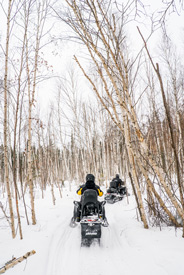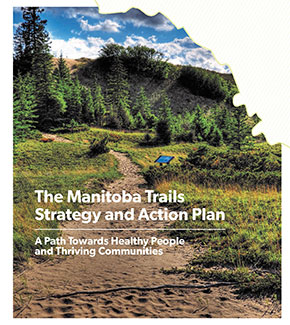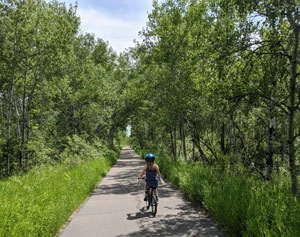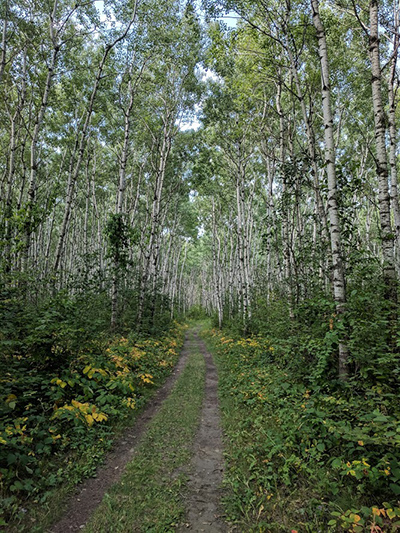
The Manitoba government works with organizations like the Snowmobilers of Manitoba Inc. (Snoman) and the All-Terrain Vehicle Association of Manitoba (ATVMB) to manage the province’s off-road vehicle (ORV) trail networks. This ensures that Manitobans and visitors have access to safe, high-quality ORV recreation opportunities.
NEW: As of April 1, 2024, registered ORV (including snowmobiles, ATVs and other types of ORV) owners are required to pay the annual $25 off-road trails fee. ORV owners must pay the fee to Manitoba Public Insurance at the same time that they pay for their ORV registration. The fee does not apply to ORVs that are exempt from registration (see MPI’s website for more information on exemptions).
Under The Off-Road Trails Safety and Maintenance Act, this fee will help to ensure that ORV users have access to safe, high-quality riding opportunities. The funding generated by the fee will be provided to Snoman and ATVMB to support:
- trail development and maintenance;
- safety education, training and promotion;
- emergency trail repair;
- operations and administration; and
- trail capital projects, if sufficient funds are available.
Some of the funds will also be used to rehabilitate lands and trails damaged by unauthorized ORV activity.
Snopass
If you wish to ride your snowmobile on Manitoba’s designated snowmobile trail network, you must have a valid Snopass. The Snopass fee supports over 50 Snoman member clubs that work to groom and maintain over 12,000 kilometres of snowmobile trails.
Annual Snopasses can be purchased year-round from any Autopac agent or Manitoba Public Insurance Service Centre. For more information, please visit Manitoba Public Insurance or Snoman.
Manitoba residents who purchase an annual Snopass are provided with a Snopass licence plate. Non-Manitoba residents who purchase an annual Snopass receive a sticker that must be affixed to the snowmobile’s windshield.
7-day and 3-day Snopasses can be purchased at any time of day from manitobaelicensing.ca. Short-term Snopasses are not available through Manitoba Public Insurance.
7-day and 3-day Snopasses may be either printed and carried on your person, or downloaded to your electronic device that you carry with you while snowmobiling. If you choose not to print your short-term Snopass, you must access the permit on your electronic device and show it to a Conservation Officer when requested to do so.
The fine for riding on designated snowmobile trails without a Snopass is $486.00.






